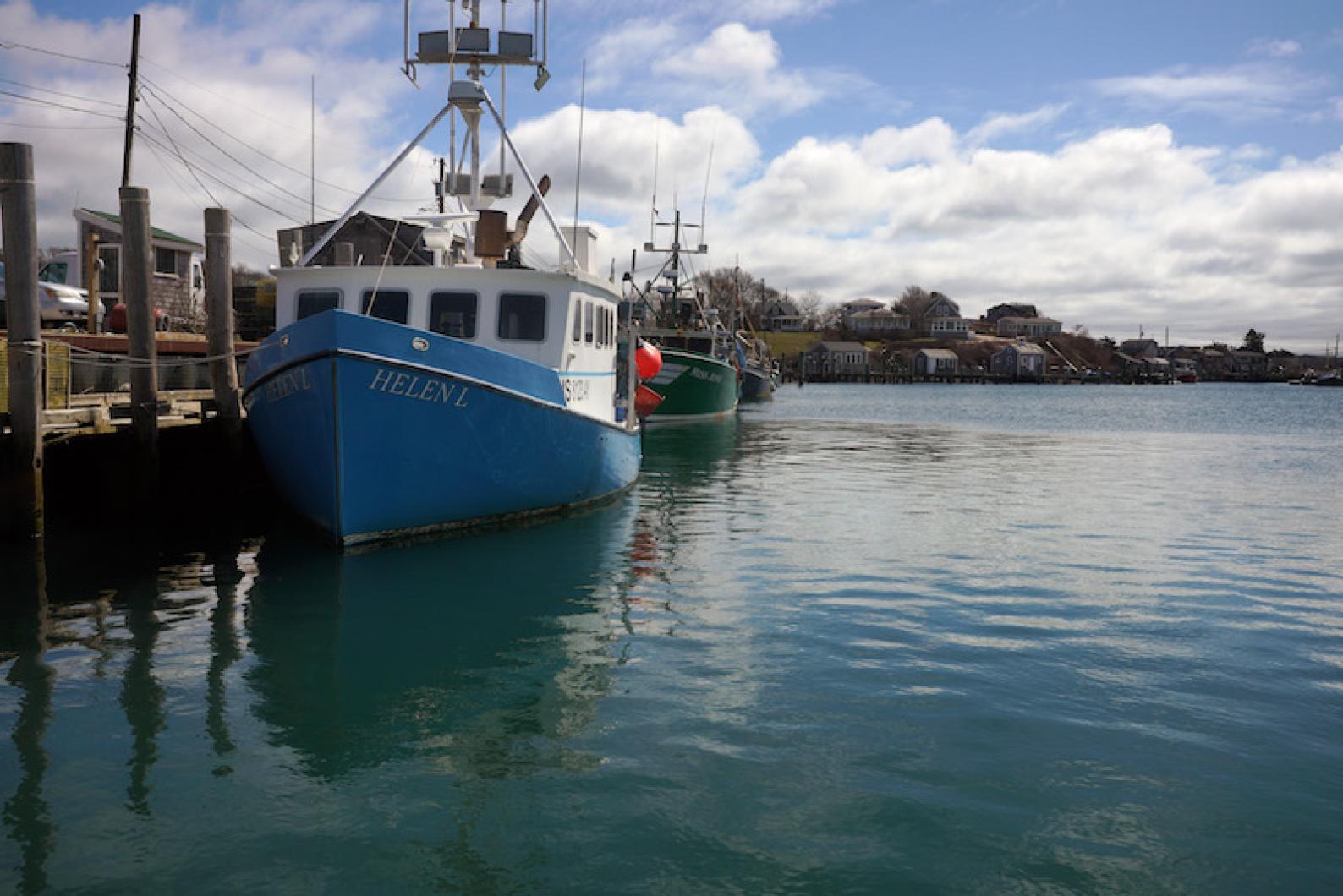The Menemsha waterfront traditionally begins to stir at this time of year. Fishermen mend their gear, sturdy work boats are back in the slips, and the Menemsha Fish House opens its doors to take in the early-season haul.
But with the pandemic, all that has changed.
Disruptions in the supply chain have rippled across the ocean from China, the main importer of seafood from the U.S., to the Menemsha Fish House. The wholesale distributor has closed indefinitely amid mass layoffs at its Boston-based parent company, Red’s Best.
“When they shut down the restaurants, our main buyers, it put a huge dent in the business,” said Alec Gale, who opened the Fish House in 2004 and was laid off last week. “It had a trickle-down effect all the way to us. We were one of the first to go.”
The Fish House isn’t alone. Ocean C Star, a New Bedford company that buys Island-caught lobster, scallops, conch and other shellfish, is also temporarily closed.
“I don’t think anyone is buying right now,” said Gary Yang, co-owner of Ocean C Star. “This may be a disaster not only for our business, but Island fishermen.”
Under the recent state emergency order imposed during the pandemic, fishermen and their distributors are considered essential businesses, along with agriculture and some others.
But with distributors shuttering and the market retracting, many fishermen said it’s unlikely they will even launch their boats this year, unsure if they will be able to make a return on the base cost of boat maintenance and gear. Those who have gone out fishing said they are unable to sell. Some are freezing their catch, waiting for the economy to thaw.
Mitchell Pachico is a commercial shellfisherman who rakes quahaugs in Vineyard Haven in the winter. In the spring, he shifts to pot fishing, hauling lobster and sea bass from Vineyard Sound. Now he said he is looking for other work.
“We’re still allowed to go out and fish, we just have nowhere to sell,” he said. “It’s putting me out of business for now until things open back up.”
Tubby Medeiros also fishes for lobster and sea bass in the spring. He said this time of year he usually launches his boat after routine winter maintenance. But with boatyards closed, he said his boat is still hauled up in New Bedford.
“I got a lot of money already out. I bought more tags this year, ordered more gear,” he said. “Normally I start putting my gear [in the water] this week, but I can’t even get my boat in the water. Right now, I’m about three weeks behind.”
Wes Brighton has a sea scalloping permit, one of the few on the Island. He said the quota for March has already been reached, but much of the product has been frozen instead of sold. He said he is unsure if the market will be able to absorb more when the quota reopens April 1.
“Everyone is freezing, crossing their fingers and hoping everything works out,” Mr. Brighton said. “There’s only one thing for sure, the markets have completely tanked.”
He continued: “Seafood is seen as a luxury item. It’s served at weddings, parties, restaurants. People don’t really eat it in the same quantity at their homes. Right now, there’s just no demand.”
Mr. Yang, the bulk distributor out of New Bedford, said the problem started long before the restaurants shut down, and in fact began in January, when the pandemic hit China hard. Seafood from Canada and the United States that was meant to be exported to China began to flood the domestic market. Distributors had a surplus of supply. Now with restaurants in the United States closed, he said, much of the surplus will be left to rot.
Shelley Edmundson, executive director of the Martha’s Vineyard Fishermen’s Preservation Trust, acknowledged the stark realities — and also ironies — right now for local fishermen.
“If fishermen are still allowed to go out, but the prices get too low, it will essentially make it impossible to recoup their expenses, and they will be at home like all of us. Which is a shame because we are all at home too, but need food,” she said.
But there may be a silver lining to the collapse of the global seafood market, which has historically handed local fishermen the short end of the stick. She said some fishermen are looking into buying permits that will allow them to sell their catch right off the boat. With restaurants closed, she said she hopes individuals at home will be able to help sustain the industry.
“Maybe this is just a window to start doing things in a different way,” Ms. Edmundson said. “Our fishermen are in a place to be a little creative. I’m hopeful, in the end, we can restructure things to be better. Maybe this is an opportunity increase our demand, to land and absorb more seafood on a local level.”







Comments (16)
Comments
Comment policy »